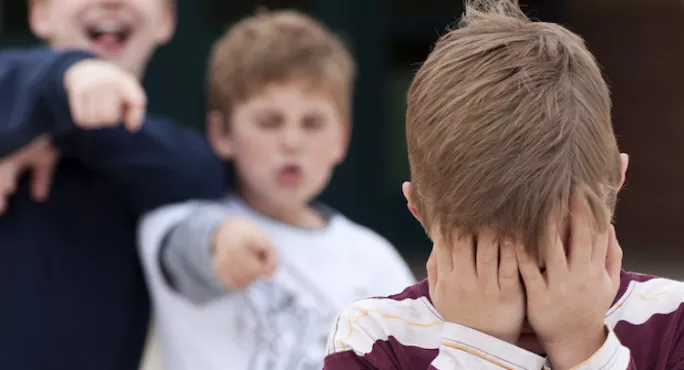- Home
- ‘It’s time for a rethink on how we handle bullying’
‘It’s time for a rethink on how we handle bullying’

I’m lucky, since I’ve only ever had to make a complaint involving sexual harassment in the workplace once during my 20-odd years of being in some form of employment. I’m less lucky insofar as my solitary complaint was not only ignored but also resulted in the termination of my own contract.
The reason, I believe (other than the institution in question historically famed for being steeped in layers of sexism) is that the perpetrator was a known victim of abuse himself. Clearly, a difficulty had arisen in framing the individual responsible both as someone who has befallen injustice and misfortune and someone capable of doing something wrong.
This is problematic because a lot of the time people who do things which are wrong have befallen injustice and misfortune at some point in their lives. It doesn’t, or at least shouldn’t, mean they are exempt from any sort of consequence.
Similarly, my colleague Nadia at the Self-Esteem Team tells of when she was in her final year of primary school and was being severely bullied by one of the other girls in her class.
She told a teacher, taking the action that children are repeatedly told will resolve issues of this nature, and was advised that they couldn’t discipline her tormentor because the bully’s mum had cancer. The lack of action in this situation directly contributed to the 20-year relationship with self-harm Nadia entered into thereafter.
In the same vein, when I was volunteering in domestic violence refuges a few years ago, there was a common thread which united the stories of all the people I spoke to there. They had stayed with their abusers because they could be nice “sometimes” and because they felt sorry for them.
In the majority of cases, the perpetrators of domestic violence had harrowing backstories or some sort of mitigating circumstances which they used to exempt themselves from responsibility for their behaviour in the present. This had the desired impact, in that their victims couldn’t reconcile the former victim with the current abuser.
Dividing people into “heroes” and “villains” is a basic human characteristic.
My theory is that it’s an instinct which probably served us well from an evolutionary perspective, dating back to when we had to make snap judgements about who to invite into our tribe and who to fight. In order to do all the things which were custom in those days when defeating the enemy (killing them, setting fire to their hut, stealing their wife, etc) it would have been necessary to dehumanise them. There was no room for nuance or compassion in that set-up.
Good versus bad
In today’s society, it’s more advantageous to be able to recognise the shades of grey, that everyone has the propensity for acts which are both “good” and “bad” within them, and that behaviour always stems from a reason, even if it’s a reason we don’t agree with.
Bullies are rarely happy and well adjusted. I wonder whether our desire to categorise the people in these situations into those on the side of “right” and “wrong” prevents us from taking the steps necessary to genuinely resolve the issue and make schools safer, more harmonious environments.
Rather than focusing on the vague outcome of “restorative justice” (which one pupil I was chatting to recently described to me as: “When I’m pulled out of lessons I love to go and sit with a girl who says ‘I’m sorry’ while both of us know she doesn’t mean it”), the goal should be to make the bullying stop and to provide any necessary ongoing care for all parties involved.
Perhaps the most effective way of doing this is to focus on what is causing the bullies’ behaviour, to see them not as an amalgamation of all the Disney villains from our childhood, but as a human being who is experiencing something which is manifesting in unacceptable behaviours.
Even as I commit my thoughts to paper, I know teachers know this already. However, like in so many examples I could cite within education, the problem is more systematic than human.
Schools are reluctant to record incidents of bullying because Ofsted perceives them as a direct reflection on their performance.
In the minority of cases which are identified as “bullying incidents”, the pupils involved are generally divided into “victim” and “perpetrator” - right and wrong - and the action taken involves the bully making amends to their victim. This doesn’t guarantee that the bullying won’t happen again, and it doesn’t generally address the root of the problem.
Furthermore, using this inadequate blueprint means that anything which challenges the black and white narrative throws the attempts to resolve the situation into disarray. Whether that’s learning that the bully is having problems at home, or that the victim said and did some things they weren’t particularly proud of as well.
In reality, relations between pupils are rarely so clear cut.
Perhaps, then, it’s time for a rethink.
Natasha Devon is the former UK government mental health champion for schools and founder of the Body Gossip Education Programme and the Self-Esteem Team. She tweets as @_NatashaDevon.
For more columns by Natasha, visit her back catalogue.
Tes and ITV’s This Morning are collaborating to gain a deeper understanding of bullying in UK schools. Please take just five minutes to fill out our survey and share your thoughts.
Want to keep up with the latest education news and opinion? Follow Tes on Twitter and like Tes on Facebook.
Keep reading for just £1 per month
You've reached your limit of free articles this month. Subscribe for £1 per month for three months and get:
- Unlimited access to all Tes magazine content
- Exclusive subscriber-only stories
- Award-winning email newsletters


